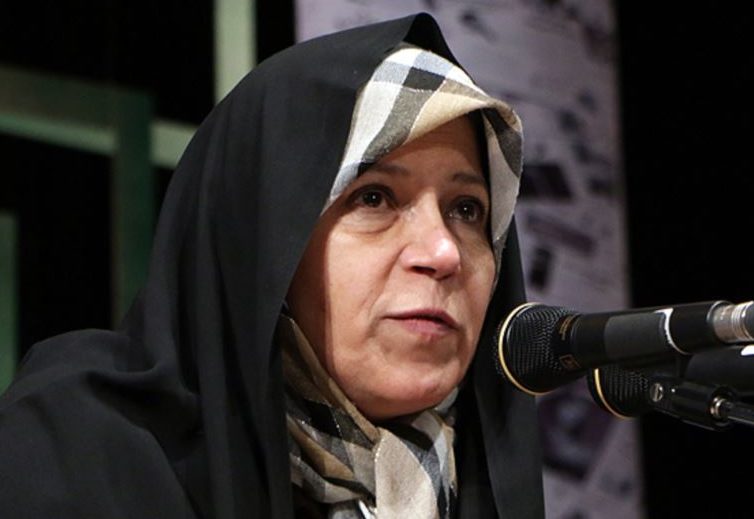January 25, 2019

Faezeh Hashemi, the activist daughter of the late President Rafsanjani, says the only reason the regime has not been overthrown is that the people do not know what will happen to them and who will take over after the Islamic Republic falls.
In an interview with the daily Mostaghel (Independent) December 27, Faezeh rather shockingly said the Islamic Republic has become devoid of content, although no physical decline has yet set in.
She said, “The physical collapse of the regime also could happen…. Although the Islamic Republic is deeply rooted, it owes its strength mainly to intimidation and terror.”
No sooner were Faezeh’s comments reported than Hassan Khomeini, grandson of the regime’s founder, spoke out similarly. He said there is no guarantee the regime wil continue given that it is ignoring basic challenges. He listed intolerance, lack of meritocracy, repression and hypocrisy as matters the regime ignores at its peril.
Faezeh said the Islamic Republic “no longer confronts dissent violently as it did in 2009,” when the Pasdaran attacked peaceful demonstrators physically. She said, instead, activists are framed, put on trial, and the courts give them harsh sentences, such as depriving them of work and education.
The Pasdaran and police have, however, attacked protesters in a number of provincial cities and towns in the last year. It has been an oddity of the past year that there are few protests in Tehran and most of the street activity opposing the regime occurs in small cities and towns.
Faezeh was jailed for six months following the disputed election in 2009, which she protested. In the 1990s, she drew huge voter support to win election to the Majlis for one term.
She has been sentenced to another six-month prison term because of statements two years ago criticizing the handling of public funds by Judiciary Chairman Sadeq Larijani.
“Every group of people sees some of its members in jail…. Many workers, teachers, truckers, women’s right activists, environmentalists, university students, economic activists and others are either in jail or have a verdict against them that will land them in jail at some point,” Faezeh told the newspaper.
Faezeh has always been a strong Reformist, supporting women’s rights, a more relaxed dress-code and lately advocating religious and ethnic minority rights—including for Baha’is. But this interview made her sound pessimistic that reforms till ever take hold under the current regime.
She also criticized the Ro-hani Administration for its inefficiency, saying, “Although the probability of the Islamic Re-public’s decline is low, yet, inefficiency is everywhere. Mismanagement and lack of prudence is evident everywhere. Everything has been abandoned and no one is doing anything to solve the country’s problems. And if they do anything, the situation only gets worse…. There is no sign of improvement in any area.”
Faezeh also expressed disappointment with the election process in Iran. “Shall we go and vote once again? Shall we work harder to bring about reforms?” she asked, answering, “Reformists’ positions and performance have not been brilliant. What is an election good for when you elect someone and what happens in practice is not consistent with your choice? Have we got any tangible result from our votes in elections since 2013?” This was the year when Rohani was first elected president with the support of her father.
“Rohani may say he has never been a Reformist. And he is right. He is a conservative. Yet he has committed himself to Reformist ideals,” and the public voted for him on that basis.
Faezeh named the religious-nationalists as Iran’s only true Reformists, referring to the movement founded in the 1960s by Mehdi Bazargan, the first prime minister after the revolution, who only lasted nine months before being cast aside. “They stood firm on their principles, although this cost them their place in power,” she said, implicitly also excluding her own party, the Executives of Construction.
The Executives of Construction are represented in Rohani’s cabinet by Vice President Es’haq Jahangiri, but they keep criticizing Rohani for his “inaction, indecision and inefficiency,” as listed in a recent interview given by the party’s leader, Gholam Hossain Karbaschi.






















